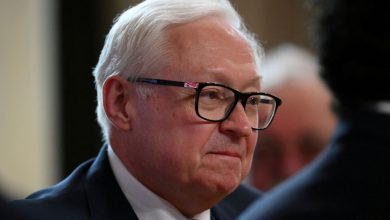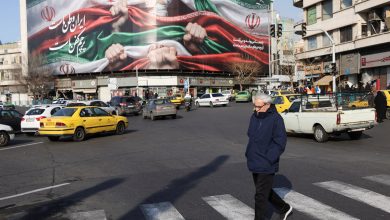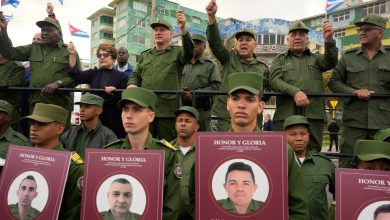Algiers – The survivors of the Al Haouz earthquake in the regions of Ighil, Chichaoua, and Taroudant are preparing to stage protests on Monday, October 21, 2024, to express their frustration over the dire living conditions they have endured for more than a year in plastic tents and the failure to provide promised compensation and support. The demonstrators accuse the authorities of mismanagement and irregularities in the processing of compensation claims.
The National Coordination of Al Haouz Earthquake Victims, along with several civil society organizations from the affected regions, has called on all excluded families and supporters to participate in two protests, scheduled to take place in front of the regional government offices in Marrakech-Safi and Sous-Massa, starting at 11 a.m. on Monday.
A Response to “Unbearable Conditions”
Houcine El-Messahat, a member of the Civil Coalition for the Mountain, one of the participating organizations, described the protests as a natural response to unacceptable living conditions. “Protests have persisted in several regions affected by the Great Atlas earthquake due to the real suffering caused, and the new calls for demonstrations reflect the deteriorating situation in Al Haouz, Chichaoua, and Taroudant,” El-Messahat told the newspaper Sout Al Maghrib.
He explained that many survivors are living in harsh conditions, particularly with the onset of winter, and noted that the support provided so far is insufficient to meet the basic needs of the affected families. “The pace of reconstruction has been painfully slow, further deepening the suffering,” he added.
El-Messahat emphasized that the failure of the government to expedite reconstruction efforts has worsened the crisis. He recalled that the Civil Coalition had warned of these issues immediately after the earthquake and later raised them in an open letter to the Prime Minister six months after the disaster. “We have demanded urgent action to restore normal life to the affected areas and rebuild what the disaster destroyed,” he said. “Unfortunately, our calls have gone unanswered.”
He pointed out that while the earthquake was a natural disaster, the neglect of mountain regions before the quake and the slow response afterward are responsibilities that fall squarely on the Moroccan government. “Successive governments have implemented unfair policies toward mountain areas, and the current administration must bear full responsibility for the post-earthquake response,” El-Messahat stressed.
Protests to Include Three Affected Provinces
According to a statement from the National Coordination of Al Haouz Earthquake Victims, participants from three provinces will take part in the upcoming protests. These include:
- Al Haouz Province, involving communities such as Tinouin Yacoub, Aghbar, Ighil, Ajoukaq, Amkdal, Tazkin in Amizmiz, Ankal, Asni, Azaden, Azkor, and Ourika.
- Chichaoua Province, with participation from Imindounit, Asif Mal, Lalla Aziza, Adouiran, and Mzoudia.
- Taroudant Province, which includes communities such as Tiznit Tast, Ounain, Sidi Waaziz, and Tafnkult.
Human Rights Groups Raise Concerns
Omar Arbib, the head of the Moroccan Association for Human Rights in Marrakech, stated in an earlier interview with Sout Al Maghrib that the organization has documented numerous violations of economic and social rights. “The government’s management of the crisis has been ineffective,” he noted, adding that most of the meaningful aid efforts came from ordinary citizens, but these only lasted for the first three months after the earthquake.
Arbib confirmed that the association continues to receive complaints from families denied monthly support and housing, who remain silent in their tents. He revealed that the association possesses documents, including lists of affected families and identification cards, showing the extent of exclusion from compensation in the provinces of Al Haouz and Chichaoua.
He also criticized the lack of transparency in the distribution of aid and raised concerns about the mismanagement of educational infrastructure projects in the affected areas.
“The right to education has been violated,” Arbib said. “Students in the affected areas could not resume classes until December, and public schools were paralyzed by strikes for more than three months. Classes ended in May, leaving students without a proper academic year.” He warned about the risks of prefabricated classrooms, which are harmful to students and teachers due to the toxic materials used in their construction.
Government’s Unfulfilled Promises
Following the earthquake in September 2023, the Moroccan government announced a reconstruction program for the affected areas. Prime Minister Aziz Akhannouch promised swift action, stating that a committee would implement King Mohammed VI’s directives to rebuild the devastated areas and compensate families who lost their homes. However, Akhannouch assured that specific plans would be finalized and announced soon.
More than a year later, a report by the African Center for Strategic and Technical Studies revealed Morocco’s inadequate handling of the post-earthquake recovery. The report criticized the slow progress in overcoming the crisis, despite the significant time that has passed since the disaster.
Incomplete Reconstruction and Displaced Families
The report highlighted several shortcomings, particularly in housing efforts for the affected families. “Despite a year having passed since the earthquake, many families remain in unstable houses or tents, as only 1,000 houses have been rebuilt out of the 50,000 needed,” the report noted. Reconstruction efforts have come to a halt, leaving thousands in limbo as winter approaches.
The report also emphasized the urgent need for Morocco to adopt a clear disaster management strategy, given the country’s vulnerability to natural disasters. It warned that annual losses from such events could exceed $800 million.
For further updates, visit DZWATCH.DZ.
Author: nor-eleslam
Phrase: Al Haouz earthquake, Morocco, reconstruction delays, disaster management, human rights violations, compensation protest, Aziz Akhannouch




